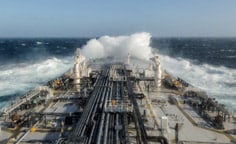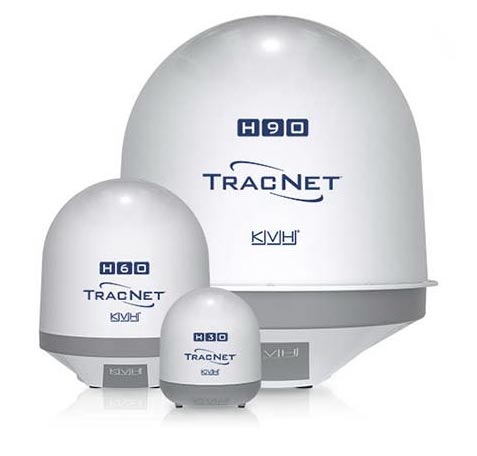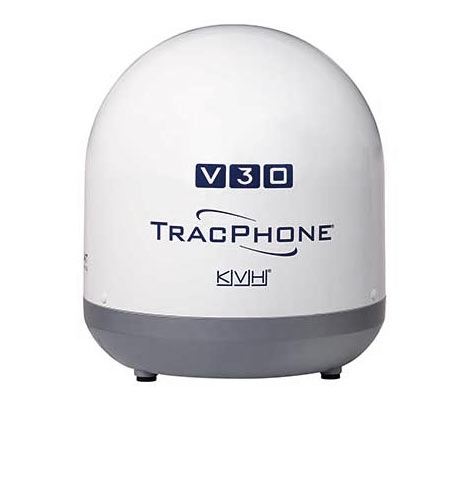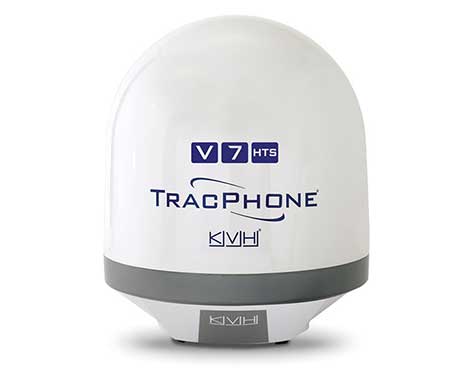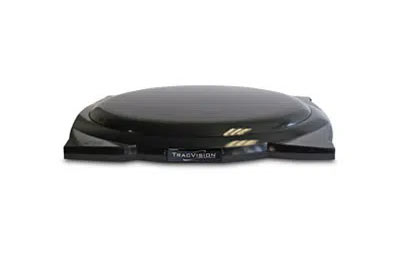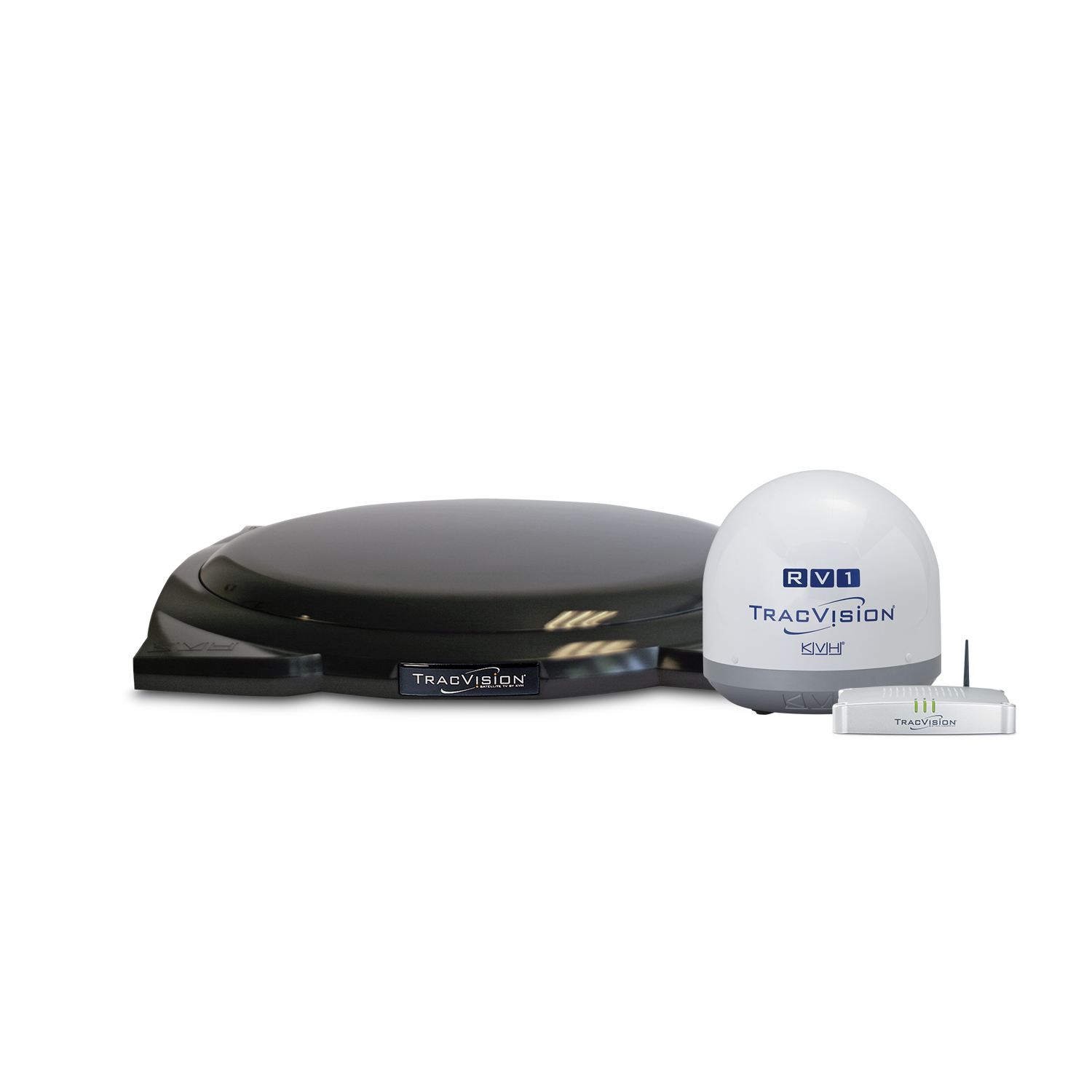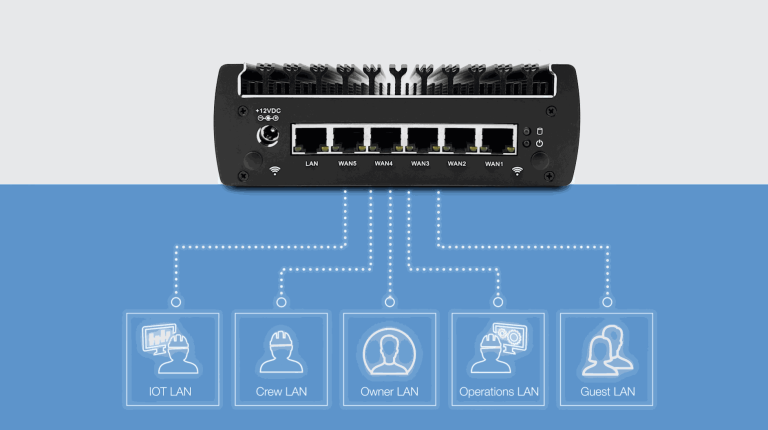Here on shore, when you’re done with a long, hard day at work, you can head home, settle yourself on the couch, and flip on the TV to catch the big game, enjoy your favourite sitcom, binge watch that thrilling series on premium cable, or read the daily news on paper (yes, paper…some people still do that) or on your mobile device.
At sea, after a long stretch on watch, it’s not quite so easy for the crew to indulge given the lack of cable or satellite TV in the middle of the ocean, no paper delivery, and a cost to receiving content via satcom. Other options do exist – DVDs, loading up a laptop with content, downloading digital content – but what are the implications for seafarers and fleet operators? What’s the best way to provide the content that matters most at sea? How can seafarers enjoy great content legally and affordably, without the risk of bringing malware and viruses onboard? What do fleet operators need to know to ensure that they are providing great content legally?
We caught up with Jamie Airs, KVH’s Global Content Advisor, to talk about his role in selecting and delivering fantastic content to crews worldwide via KVH Link and KVH linkHUB as well as the issues that fleets and crews should be aware of when bringing content onboard.
KVH: What sort of content are you looking for when determining what KVH can provide to seafarers?
Jamie Airs: We look for all types of content, from all over the world, that might give a seafarer a memorable or positive experience. Movies, news, sports, viral web content, TV shows, music, podcasts, video games, wellbeing clips; nothing is off the table. Many of us can remember something that was happening in our life or what we were doing when we saw an iconic sports moment or watched a major international or local news event; many remember the first time they saw their favourite movie. We’re looking for content that provides a connection to home, brings crew together, enhances intellectual or professional pursuits, or would simply provide a great escape when off watch—content that seafarers will remember as something they enjoyed while at sea.
KVH: Aside from MLC 2006 guidelines or any requirements for content provisioning or crew welfare in general, why do you think fleets should provide content to crew?
JA: Good crew morale and job satisfaction are key to efficient operations, and services provided for crew off watch can have a significant impact. The pandemic and ensuing crew change crisis only further highlighted the importance of content for crew wellbeing. Similarly, many ship managers are looking for ways to thank their crew for their hard work during such difficult times. Content provides a high return on investment, and the effectiveness and power that content can have makes it one of the most efficient ways to spend your crew welfare budget. Fleets have great content licensing options available for almost any budget. Best of all, providing content that crews will appreciate and value requires little or no personnel resources onshore. It’s an easy, affordable way to stay competitive and have a happy crew.
KVH: What does licensing mean when talking about content?
JA: Almost all content we access – movies, TV shows, books, sports, news, and so on – is protected by copyright. International copyright law provides that to use, distribute, or exhibit copywritten content, whether it’s audio, visual, and/or text, one must have permission from the copyright holder. This permission is given by the grant of a license.
KVH: Why should commercial fleets care about licensing content?
JA: Whether a ship is exhibiting a free-to-air (FTA) feed when close to shore or a movie in the crew mess, a license is needed. In almost all cases, that license is not implicitly granted. The potential consequences for vessel owners, operators, and managers of vessels exhibiting content without a license can be severe and liability may exist for these parties even in circumstances where the crew, not the fleet operators or managers, violate copyright laws. Consequences can include significant monetary fines, vessel seizures, and even prison sentences.
KVH owns copyrights or is given permission by copyright holders to grant licenses for a wide variety of content. By providing licensed entertainment, fleets can help ensure content onboard complies with the requirements of local and international copyright law and it’s often more affordable than one might expect.
KVH: What are some best practices for fleets when they want to provide content resources for crew welfare?
JA: It’s important to know your crew demographics. Decision makers should keep in mind that their personal interests and those of crew at sea may be very different. I would also suggest getting feedback from as many crew members as possible, not just captains, and consider allowing crew to provide that feedback anonymously. Sometimes that’s easier said than done. As the oldest and largest content provider in the market, KVH has a good handle on what seafarers of different ranks, nationalities, and age groups like and can help fleets understand options within their budget.
Next is prioritizing what you want content to do for the crew and for the fleet. Often crew are very interested in news in their first language and sports from their country—content that keeps them connected to home. Sports, movies, and TV shows are great for bringing crew together. Special interest content like that covering health and wellness, cooking or photography shows you value their personal growth, while providing video updates from head office fosters a sense of inclusion and can help facilitate a safe working environment.
For vessels with KVH TracPhone V7-HTS or V11-HTS antennas, KVH Link delivers content via our unique IP-MobileCast multicast service, but not to fear, our industry-leading content services are available regardless of what SATCOM service you have onboard via KVH linkHUB.
The more fleets provide sufficient content quality, variety, and volume, the more effective the welfare program will be for morale and crew retention, and the less likely crew are to put the fleet at risk by supplementing their needs with unlicensed content.
Discover more:
Explore the types of licensed movies and TV shows that are available to seafarers.
